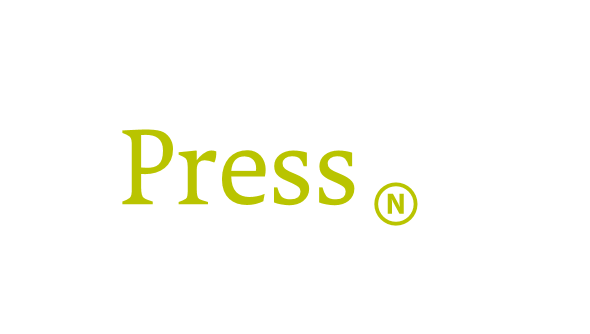A joint press release from the Federal Ministry for Economic Affairs and Climate Action and the German Council for Sustainable Development (RNE)

German Sustainability Code to be expanded to help SMEs in particular report on their sustainability performance.
Berlin, 2 April 2024 – Companies should be able to hit the ground running when they come to implement the new standards for sustainability reporting. With this in mind, the German Sustainability Code (DNK) developed by the German Council for Sustainable Development (RNE) is being updated and expanded with, among other things, a new online platform. The Federal Ministry for Economic Affairs and Climate Action (BMWK) will provide 19,250,000 euros in funding over a three-and-a-half-year period in a bid to minimise the time and effort required for sustainability reporting, especially by small and medium-sized enterprises (SMEs). The move is the German government’s response to the expansion of EU-wide reporting obligations, which will result in some 13,000 companies in Germany having to join the reporting ranks from 2025. The DNK enables low-threshold, legally compliant sustainability reporting by means of free and practical support via, for example, an online platform, training courses and guidelines.
Michael Kellner, Parliamentary State Secretary at the BMWK and the federal government’s SME Commissioner: “We must prevent any additional red tape. Our goal is therefore to take as much pressure as possible off small and medium-sized enterprises in particular, as regards their reporting obligations. These include reporting on sustainable business practices. Companies must be able to supply their contract partners and banks with all the necessary sustainability data in standardised form and also make eco- and climate-friendly economic activity transparent to the public. The German Sustainability Code is the key to this. It will provide free, low-threshold digital support for companies to fulfil the new statutory requirements for reporting on sustainability and due diligence. The standardised, digital, user-friendly format offered by the DNK 2.0 will make reporting a whole lot easier.”
Reiner Hoffmann, Chair of the German Council for Sustainable Development: “Sustainability reporting plays an important part in boosting corporate responsibility for environmental and climate protection and human rights compliance as well as gradually course-correcting towards a sustainable economy. It’s not about sanctions – it’s about transparency. The sustainability report is the product, but much more important is the company’s internal process that results from analysing its own activities and value chain. The companies themselves need this data to configure their business models sustainably and competitively.”
Gerd Röders, President of WirtschaftsVereinigung Metalle and managing partner of the foundry G.A. RÖDERS GmbH & Co. KG: “For our business, the DNK was a valuable motivation to get on with preparing our first voluntary sustainability report. The clear structure and good explanations – in the guide and on the platform – make it comparatively easy for users to write their first sustainability report.”
As well as building an online platform for creating and publishing sustainability reports electronically (by the end of 2024), the expanded DNK offering will include a help desk for companies with technical and content-based questions, as well as support through, for instance, webinars and guidelines. The free service is aimed at both companies that are already obligated to report or soon will be, and those who do so voluntarily, who wish to tackle the increasing demands around the issue of sustainability head on. Added to this are companies which, though not legally obliged to report, nevertheless find themselves subject to the information requirements of their contract partners in the value chain. For these businesses, there will be a simplified entry-level module based on the EU’s voluntary SME standard.
More information
Already since 2014, market-listed companies of public interest in the EU have been required to report on their sustainability performance, as regulated by the European Non-Financial Reporting Directive; in Germany this affects approximately 550 companies. The reporting obligation is being significantly expanded by the Corporate Sustainability Reporting Directive (CSRD), which came into effect in January 2023. As a result, the number of companies across the EU that are required to report will gradually increase from 11,600 to 49,000, estimates predict. In Germany, this will affect around 13,000 companies, starting in 2025, when they will be obliged to submit a sustainability report as part of their annual company report. The criteria within the twelve main areas include, for example, measures to preserve biodiversity at company locations, climate adaptation measures and programmes to protect human rights along the value chain. Reporting on due diligence compliance in supply chains as per the EU’s Corporate Sustainability Due Diligence Directive is likewise required under the CSRD.
The present German Sustainability Code (DNK) was developed by the German Council for Sustainable Development (RNE) and has been supporting companies with their sustainability reporting since 2011. The current expansion of the Code is being conducted by the Deutsche Gesellschaft für Internationale Zusammenarbeit (GIZ) GmbH, with ongoing consulting support from the RNE. The purpose of the DNK is to help companies gain low-threshold access to sustainability reporting and meet the corresponding legal requirements. It is already being used by more than 1,200 companies as a reporting tool to publish their sustainability achievements and develop them further.
Press contacts
BMWK Press Office
Scharnhorststraße 34-37
10115 Berlin
Email: pressestelle@bmwk.bund.de
Phone: +49 30 18615 6121 and 6131
RNE Press Office
German Council for Sustainable Development
Office c/o GIZ GmbH
Potsdamer Platz 10
10785 Berlin
Email: presse@nachhaltigkeitsrat.de
Phone: +49 30 338424 529